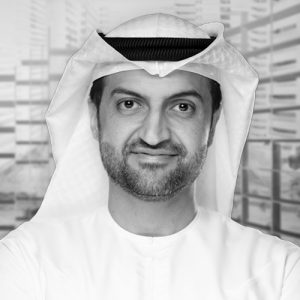“Don’t catch a falling knife”. So goes the famous cliché on Wall Street, which warns against buying in a sharply falling market.
But what if that knife is moments away from being wedged into the ground – when there is not much else left to lose – and you rescue it from its gravitational destiny?
While no strategy is ever free from risk, and the COVID-19 financial downturn is unlike anything experienced in our lifetimes, both private investors and financial institutions can now locate a number of rising opportunities.
Now is not the time to wait and watch in our opinion, but it is the time to pivot your strategy and act by taking stock of what really matters now and post COVID.
In fact, at SHUAA Capital , we are continuously focusing on strengthening our specialised corporate restructuring service to reenergise the business sector and meet the immediate and increasing need for fresh capital.
Created to address the frozen credit markets that resulted in liquidity issues and potential insolvency fears faced by many businesses impacted by the pandemic, our solution opens doors to new credit lines for both large corporates, and small and medium enterprises (SMEs). We typically underwrite and hold a portion of any capital raised – and we like having skin in the game to show our clients and our investors and banking relationships that we stand behind the restructuring.
Our experience in amortizing bond issuance, providing additional capital to a company in need, and matching its repayment terms to its cash flows is no secret of course. In the past few years, SHUAA has structured and invested over USD 4 billion of debt deals including almost USD 1 billion of high yield or alternative debt transactions, including the recent successful completion of the region’s first high-yield fixed income issuance (Sukuk) for Gulf Navigation with a total value of AED125 million even as the virus froze credit markets globally, and increasing the total amount raised for SHUAA-led Sukuks to more than USD 600 million over the past year and a half.
Meanwhile, we have also worked to reinforce our advisory services for corporates to execute capital raising through diverse instruments.
Let’s be clear though.
The world has experienced a humanitarian calamity that is continuing to unfold – so while we all need to do what we can to protect our financial futures, we believe there are opportunities to generate outsized gains.
For those pursuing acquisitions, now is the time to apply a “constructive activist” approach.
We believe that there are attractive opportunities now available across the region that will generate appropriate risk-adjusted returns for investors in key sectors including healthcare, real estate, hospitality, and shipping.
We’ve been busy identifying several needs for short-term recapitalisation, growth capital, bridge loans and acquisition financing in the region and are looking to provide innovative alternative investments including last-mile funding – an area we have successfully engaged, having supported companies through several challenging economic cycles in the past. As our economy moves into a recovery phase, we see this as the ideal time to jumpstart key projects towards their successful completion.
Our Goldilocks fund, for example, implemented this strategy and generated very good returns during the past 5 years since its inception in July 2015 – even as the markets fell in recent years despite contrary views shared by many fund managers.
One of the key reasons for this has been our innovative ‘constructivism’, or constructive activist approach, that is based on engagement with the boards and managements of underperforming public listed companies to help turn them around and realize even greater value.
Investors keen on locating value and identifying segments that will be the next investment trends, or stand to benefit in the future, cannot afford to ignore start-ups and SMEs either.
First, they represent more than 94 per cent of the total number of companies operating in the UAE, employing about 86 per cent of the country’s private sector workforce and generating 52 per cent of the non-oil GDP. But second, and more importantly, tech SMEs in particular have been the ones helping battle the outbreak by leveraging cloud computing and storage, artificial intelligence, machine learning, blockchain and the Internet of Things across the education, construction, logistics, healthcare, eCommerce, agriculture and finance sectors.
These companies are an integral part of the UAE’s economy and society and will, in turn, help spearhead our country’s post COVID-19 economic recovery.
Other resilient opportunities to reposition for current and post-pandemic market realities also include countercyclical sectors such as insurance and shipping: If there’s one thing the virus has taught everyone, it is that healthcare and life insurance simply cannot be overlooked. We see increasing demand for Shari’ah-compliant insurance (Takaful) now more than ever because Islamic principles put strong emphasis on the economic, ethical, moral and social dimensions, to enhance equality and fairness for the good of society. The Takaful market is expected to grow to USD 40 billion by 2023 from roughly USD 19 billion in 2017.
COVID-19 has also charted the routes of global trade to highlight our fundamental dependence on transport infrastructures with the unprecedented demand for logistics during the outbreak.
To conclude, despite the global turbulence we firmly believe that the region, and the UAE in particular, enjoys strong fundamentals that will encourage investment funds to make the most of the current market prices and low valuations.
We can learn to catch a falling knife without getting cut.
Disclaimer
The content of this article is informational only and based on information available when created. It is not an offer or a solicitation nor is it tax or legal advice. It does not consider your financial circumstances and objectives and may not be suitable for you.

Author:
Jassim Alseddiqi
Group CEO of SHUAA Capital

